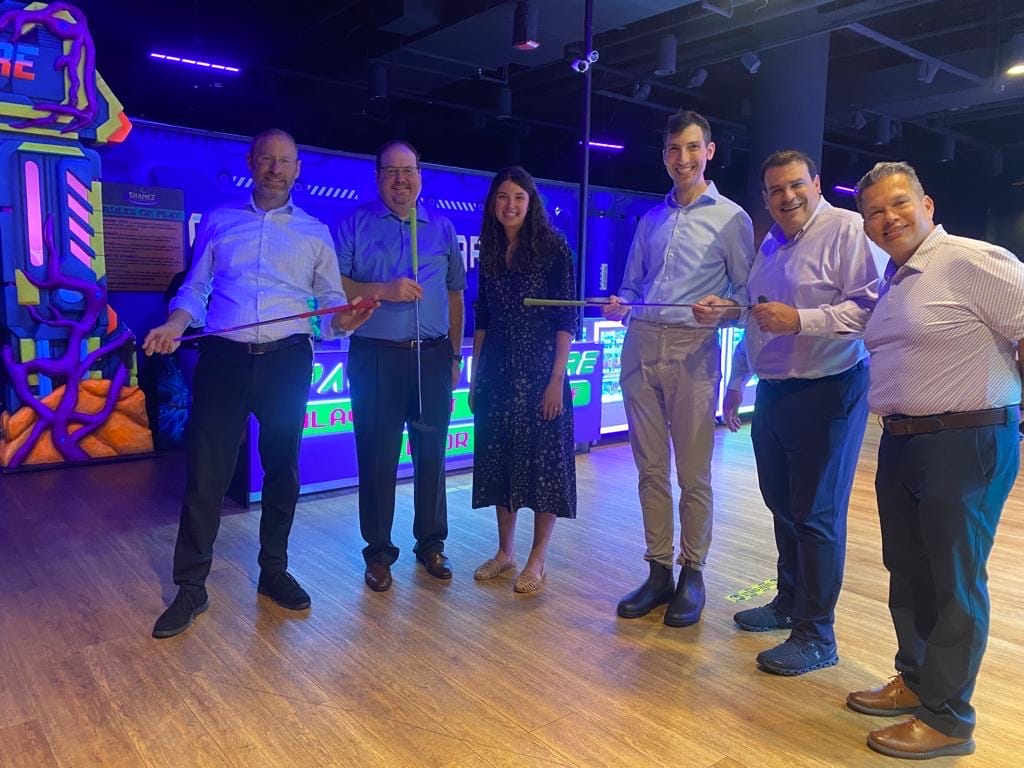A Case for Prioritizing Human Capital
Happy Customers + Happy Employees = Success.
Isn’t it time we remember who we serve?
After 45 years of providing first-class custom modular buildings to the construction, healthcare, and education sectors, Nadler Modular has recently expanded into leasing, and it has been an exhilarating ride.
We decided to anchor our growth on the two values we have exemplified over the years: loyalty to our employees and unrivaled service/value to our customers.
As companies in our industry and beyond have grown, transitioning from “family run” to “corporate structure” usually represents trading service and employee satisfaction for process and profits.
A growth path lives where that trade-off is nonexistent, and we are excited to continue to pursue that and wow the expectations of our stakeholders, employees, and customers. To that end, Nadler has onboarded process and hospitality experts to create a formula for success that many have failed to realize.
One of our inspirations lies in the hospitality and service industry. An example is at the Ritz Carlton; employees of every level (bellboy to manager) are empowered to spend $2,000 per guest per day without approval to solve a customer complaint or make a customer happy. (Bacon and Pugh 2004)

We have empowered every employee in the Nadler family to do the same. We call it “The Nadler 1K,” whether it is a gift basket to say thank you or ordering a car service and pickup for a client when he tells you his car broke down - our employees do not need to ask any manager for approval.
Tom Bosack, our new VP of leasing, conveyed it best: “At the end of the day, the bread and butter are the relationships...that means ensuring as we grow, we do not fall into the trap of seeing value through the prism of a single transaction but instead by a long term relationship and reputation- the long term value of a customer and our market value proposition is worth significantly more than one rental or one sale.”
“We are committed to giving our Nadler family compensation, benefits, and opportunities that we would provide ourselves."
- Jeff Neeman, CEO, Nadler Modular
As part of our Nadler Advantage, we have committed to a single point of contact with our customers for all communication; we are working with leading process experts to ensure we stay true to that promise.
“This goes beyond net promoter scores and employee response times; data will still be the foundation to measure our success of all our efforts, but it is important to understand there is a human face tied to that data.”
Research has been unequivocal in the shared success happy employees make. (Oswald et al., 2015)
As with any growth, there have been growing pains, but we are working hard to ensure our employees are successful.
“We are committed to giving our Nadler family compensation, benefits, and opportunities that we would provide ourselves,” said Nadler’s CEO Jeff Neeman.
“At Nadler, we view every deal, regardless of value, equally. Our leadership team has flown all over the country to help our sales team win. We have and will continue to demonstrate a vested interest in ensuring the success of every one of our employees because, at the end of the day, their success is all of our success.”

CITATIONS:
Bacon, T. R., & Pugh, D. G. (2004). Ritz-Carlton and EMC: The gold standards in operational behavioral differentiation. Journal of Organizational Excellence, 23(2), 61–76. https://doi.org/10.1002/npr.20009
Oswald, A. J., Proto, E., & Sgroi, D. (2015). Happiness and productivity. Journal of Labor Economics, 33(4), 789–822. https://doi.org/10.1086/681096
More from Modular Advantage
AoRa Development Aims for New York’s First Triple Net Zero Building Using Modular Methods
More cities are providing funding for newer infrastructure projects as long as they meet sustainability requirements. This is how modular can fit the bill, thanks to its lower waste production.
Developers and Designers: Lessons Learned with Modular Design
Modular construction is attractive to many developers because sitework and module construction can occur simultaneously, shortening the schedule and reducing additional costs.
UTILE: Putting Modular Building on a Fast Track
In Quebec, UTILE is taking the lead in creating affordable modular buildings to help decrease the student housing shortage. During the process, the company discovered what it takes to make the transition to modular building a success.
Sobha Modular Teaches Developers How to Think Like Manufacturers
With its 2.7 million square foot factory in UAE, Sobha Modular is bringing both its high-end bathroom pods to high-end residences to Dubai while developing modular projects for the U.S. and Australia.
RoadMasters: Why Early Transport Planning is Make-or-Break in Modular Construction
In modular construction, transportation is often called the “missing link.” While it rarely stops a project outright, poor planning can trigger costly delays, rerouting, and budget overruns.
Navigating Risk in Commercial Real Estate and Modular Construction: Insights from a 44-Year Industry Veteran
Modular projects involve manufacturing, transportation, and on-site assembly. Developers must understand exactly what they are responsible for versus what they subcontract. Risk advisors should research the developer’s contractors, subcontractors, and design-build consultants—especially the modular manufacturer.
Art²Park – A Creative Application of Modular and Conventional Construction
Art²Park is more than a park building—it’s a demonstration of what modular construction can achieve when thoughtfully integrated with traditional materials. The use of shipping containers provided not only speed and sustainability benefits but also a powerful structural core that simplified and strengthened the rest of the building.
Building Smarter: A New Standard in Modular Construction Efficiency
Rising material prices, labour shortages, expensive financing and tightening environmental rules have made conventional construction slower, costlier, and more unpredictable. To keep projects on schedule and within budget, builders are increasingly turning to smarter industrialized methods.
Resia: Breaking All the Rules
Resia Manufacturing, a division of U.S.-based Resia, is now offering prefabricated bathroom and kitchen components to industry partners. Its hybrid fabrication facility produces more precise bathroom and kitchen components (modules) faster and at lower cost than traditional construction. Here’s how Resia Manufacturing does it.
How LINQ Modular Innovates to Bring Modular To The Market in the UAE and Beyond
LINQ Modular, with an office and three manufacturing facilities in Dubai, is a modular firm based in United Arab Emirates. The company is on a mission: to break open the housing and construction markets in the Gulf Cooperation Council (GCC) area with modular.










